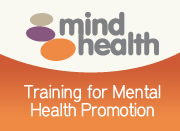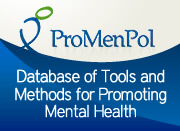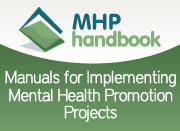Tools
- Utilities:
- Print this page
- Send this page
- Font size:
- Increase font size
- Decrease font size
Projects
Login, so as to add your own items.
-
Psychosocial RIsk MAnagement – Excellence Framework
20/05/2011
Work-related psychosocial risks have been identified as one of the major contemporary challenges for occupational health and safety; and are linked to such workplace problems as work-related stress, violence, harassment and bullying. PRIMA-EF aims at providing policy makers, employers, trade unions, experts and employees with a comprehensive best practice framework for psychosocial risk management at the workplace. PRIMA-EF is part of the World Health Organization’s Healthy Workplaces Framework. -
Maximising Employee Performance by Minimising the Impact of Substances in the Workplace
29/10/2010
This is a two-year project, started in 2009, with partners in 7 countries. The aim of the MEPMIS Project is to develop a training resource (web based, & face to face for trainers and managers in small and medium sized enterprises (SMEs) that will equip them with the appropriate skills and sufficient knowledge and understanding to enable them to deal both proactively and reactively with the issue of substances and their impact on work / employment. -
Foresight Project on Mental Capital and Wellbeing
22/12/2008
The Foresight Project “Mental Capital and Well-Being” was implemented between July 2006 and October 2008 under the supervision of the UK Department for Innovation, Universities and Skills for the UK Cabinet Office. -
European Alliance Against Depression
20/10/2008
The EAAD is a multilevel, community-based awareness programme to improve the care of depressed patients and prevent suicidality in Europe. Action programmes fostering partnerships and bringing together regional and national authorities to promote the care of depressed patients are urgently needed.
In 2001 the “Nuremberg Alliance Against Depression” was initiated as a community-based model project within the large-scaled “German Research Network on Depression and Suicidality” (Kompetenznetz “Depression, Suizidalität”). The “Nuremberg Alliance Against Depression” was a 4-level action programme, conducted in the city of Nuremberg (500,000 inhabitants) in 2001/2002, addressing 4 parallel intervention levels (Hegerl et al. 2006).
Based on the positive results of the Nuremberg project (a significant reduction of suicidal behaviour by more than 20%) 18 international partners representing 16 different European countries established the “European Alliance Against Depression” in 2004. All regional partners initiated respective regional intervention programmes addressing depression and suicidality. Evaluation of the activities takes place on regional and international level. The manual is available in German and English.
The European Commission presented the EAAD project as one of the most promising strategies in the area of mental health at the WHO European Ministerial Conference on Mental Health in Helsinki and listed EAAD in its Green Paper (European Commission 2005). -
Move Europe - A Campaign for the Improvement of Lifestyle-Related Workplace Health Promotion in Europe
22/04/2008
In the face of global competition the health of the workforce has become the key resource for sustainable companies. Workplace health promotion has also become increasingly important in view of the ageing workforces. Individual interventions such as maintaining workability and performance in the future are not sufficient to secure long-term success. On the contrary, a holistic concept is needed which aims its sights on both the physical and mental well-being of employees. Good conditions at the workplace itself are just as important as the promotion of a healthy lifestyle as a whole. -
Getting Evidence into Practice
24/03/2008
This project represents collaboration among key national agencies and international networks for health promotion in the form of a European Evidence Consortium. The project Getting Evidence into Practice (running period February 2004-July 2005) has been focusing on health promotion, public health and prevention interventions. -
A European Platform for Mental Health Promotion and Mental Disorder Prevention: Indicators, Interventions And Strategies
01/06/2007
This is a two-year project, started in 2004, with partners in 28 countries. It builds on the work of the previous EC funded IMPHA project (Implementing Mental Health Promotion Action). The Platform will provide a comprehensive strategy for Mental Health Promotion and Mental Disorder Prevention. It also aims to develop indicators and strategies for mental health and disseminate and implement information and action across Europe. -
Measuring Health and Disability in Europe: Supporting Policy Development
01/06/2007
The MHADIE project (Measuring Health and Disability in Europe), lead by the WHO and involving 16 partner organisations across ten EU countries, aims to demonstrate the application of the ICF model in the collection of health and disability data. It will show that data currently being collected, nationally and internationally, embody conceptual confusions, inconsistencies and ambiguities about disability and the relationship between health conditions, impairments and environmental factors. In addition, the project will produce specific policy recommendations and guidelines designed for use in health disability policy planning and development across the European Union. -
EU for Health and Wealth - Impact Assessments in Improving Population Health and Contributing to the objectives of the Lisbon Strategy
01/06/2007
Population health is directly and implicitly included in the social objectives of the EU. Equal distribution of health and wellbeing, among population groups constitute a central pillar for the development of the EU. As a healthy population is also a productive population, health is also a cornerstone of the Lisbon Strategy, aiming at increasing the competitiveness of Europe. These perspectives and objectives underline the fact that health is to a great extent determined by broad social, environmental, economic and cultural determinants that are out of reach of health care services and beyond the mandate of health sector -
Monitoring Suicidal Behaviour in Europe
01/06/2007
MONSUE is a three-year project, which started in 2005. The project aims to reduce the frequency of suicide, suicide attempts and the repetition rate of suicide attempts in various European countries, by assessing the magnitude of the problem (monitoring of suicides and suicide attempts), the identification of groups at risk, risk factors, and specific variables (methods, “hot spots”, time variables etc.) which can be influenced to prevent this behaviour. In addition, the project will develop guidelines for suicide prevention.


